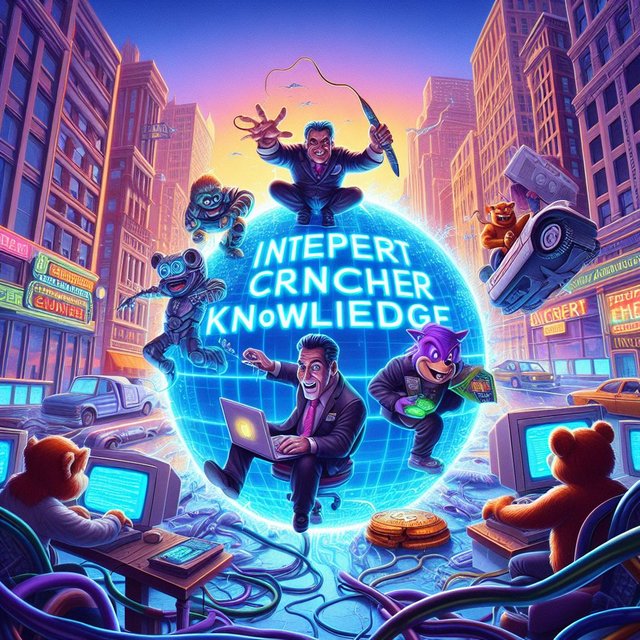In his book "Super Crunchers: Why Thinking by Numbers Is the New Way to Be Smart," Ian Ayres delves into the transformative power of the internet and its role in creating a knowledge monopoly. He argues that the ability to collect, analyze, and utilize vast amounts of data gives corporations and institutions an unprecedented advantage, potentially reshaping society in ways we have yet to fully grasp.
Ayres's thesis rests on the idea that the internet has fundamentally altered the way we access and process information. In the past, knowledge was largely held in books, libraries, and the minds of experts. Today, however, information is readily available online, and powerful algorithms can sift through it at lightning speed, uncovering patterns and insights that were once hidden to the human eye.
This abundance of data has led to the rise of "super crunchers": organizations with the resources and expertise to collect and analyze vast quantities of information. These include companies like Google, Amazon, and Facebook, as well as government agencies and financial institutions.
Ayres argues that super crunchers have a number of advantages over traditional knowledge holders:
Access to data: Super crunchers have access to vast amounts of data that would be impossible for any individual or organization to collect and analyze on their own.
Computational power: Super crunchers have access to powerful computers and algorithms that can process data much faster and more efficiently than humans.
Financial resources: Super crunchers have the financial resources to invest in data infrastructure and personnel, giving them a significant advantage over smaller organizations.
These advantages allow super crunchers to gain insights into human behavior, predict trends, and make decisions with a level of accuracy that was previously unimaginable. As a result, they are increasingly able to control and influence various aspects of our lives, from the products we buy to the politicians we elect.
Ayres raises a number of concerns about the power of super crunchers:
Privacy: The vast amount of data collected by super crunchers raises serious concerns about privacy and data protection.
Bias: Algorithms can perpetuate and amplify existing biases, leading to unfair and discriminatory outcomes.
Transparency: The complex algorithms used by super crunchers are often opaque and difficult to understand, making it challenging to hold them accountable for their decisions.
Monopoly power: As super crunchers become increasingly powerful, they may stifle competition and innovation, leading to a less diverse and dynamic marketplace of ideas.
Ayres argues that it is essential to address these concerns before super crunchers consolidate too much power. He proposes a number of solutions, including:
Stronger privacy laws: Governments need to enact and enforce stronger privacy laws to protect individuals' data from being collected and used without their consent.
Algorithmic oversight: There needs to be greater transparency and accountability for the algorithms used by super crunchers.
Investments in data literacy: Individuals need to be educated about how data is collected and used, and how to protect their privacy online.
Support for smaller organizations: Governments and institutions should support smaller organizations in developing their own data capabilities, so they can compete more effectively with super crunchers.
Conclusion
"Super Crunchers" is a thought-provoking book that raises important questions about the role of data and technology in our society. While the internet has undoubtedly led to many positive advancements, it is also important to be aware of the potential downsides of the knowledge monopoly it has created. By acknowledging the challenges and taking steps to address them, we can ensure that the internet remains a force for good and that everyone has the opportunity to benefit from its vast potential.
By understanding the implications of the internet as a basis for a knowledge monopoly, we can collectively work towards a future where information is accessible to all, used ethically, and serves to empower individuals and communities. The choices we make today will determine whether the internet becomes a tool for progress and equality, or a source of division and manipulation.
